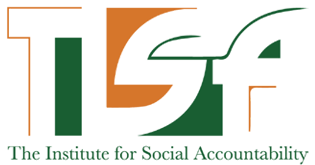Address
The Institute for Social Accountability (TISA)
Westlands Avenue, Wendy Court, Hse no. 1
David Osieli Rd, Westlands
Work Hours
Monday - Friday: 8:00 AM - 5:00 PM

Public procurement, the process by which governments purchase goods and services from businesses from the private sector, is a significant economic driver. According to the world bank, governments worldwide expenditure amounted to $11 trillion out of global GDP of nearly $90 trillion in 2018 on public procurement. However, accessing public procurement opportunities can be challenging for marginalized groups, including women, people with disabilities, ethnic minorities, and other disadvantaged communities.
Access to government procurement opportunities (AGPO) is a significant factor in the economic empowerment of informal traders In Kenya, government procurement represents a portion of overall economic activity, making it an important source of business for micro small and medium enterprises. However, studies have shown that these groups face significant challenges in accessing these opportunities. Research by TISA on assessing barriers and challenges faced by women in accessing AGPO opportunities shows that marginalized groups face several challenges in accessing public procurement opportunities. one of the most significant barriers identified in the study is lack of information on the opportunities under AGPO. Many marginalized businesses are not aware of the opportunities available or how to access them. Limited access to information was identified as a significant barrier for many businesses. Many women-owned business are small and lack the resources to actively seek out information about procurement opportunities. This is particularly true for micro small and medium sizes enterprises, which often lack the resources to navigate complex procurement procedures. Additionally, procurement processes can be complex and opaque, making it difficult for businesses to understand the requirements and procedures involved.
A lack of knowledge about the procurement process was also identified as a significant barrier. This can include a lack of understanding of how to prepare bids and proposals, as well as how to navigate the procurement process once a contract has been awarded.
Limited access to finance was identified as another significant barrier for informal traders. Many businesses lack the capital, and access to credit and financing necessary to invest in the resources required to participate in government procurement effectively. This can include investment in staff training, the development of effective marketing materials, and the acquisition of necessary certifications and licenses. To add unto that, the sanctity of local purchase orders is not upheld by banks, it was established that NG-CDF is a good payer but does not consider AGPO thus WLB are disadvantaged.
Women-led businesses often lack the resources and capacity to compete for procurement contracts. SMEs may not have the resources to produce the required documentation or meet the necessary standards, such as quality control or environmental standards. Additionally, larger businesses may have more experience and expertise in the procurement process, giving them an advantage over smaller, less experienced businesses.
Overall, the research highlights the need for targeted support for women-owned businesses seeking to participation government procurement processes. This support could include measures to improve access to information about procurement opportunities, as well as training and capacity- building initiatives to help businesses navigate the procurement process effectively. Additionally, measures to improve access to finance could help to address the capital constraints faced by many businesses.
The Institute for social Accountability highlights the importance of overcoming their barriers to create a more inclusive and equitable economy. We recommend several measures to improve access to government procurement opportunities for marginalized groups. These include:
By implementing these recommendations, the government can create a more inclusive and equitable economy, where women-led businesses have equal access to procurement opportunities. this can lead to increased economic growth and job creation, particularly in women-owned businesses. Moreover, by promoting diversity and inclusion in procurement process, the government can contribute to a more socially just and equitable society.
In conclusion, the research highlights the challenges faced by women in accessing public procurement opportunities and the importance of overcoming these barriers. The government needs to take action to create a more inclusive and equitable economy, including improving information dissemination, building capacity, and promoting SME participation. By doing so, governments can promote economic growth, job creation, and a more socially and accountable society. Overall, the barriers faced by women led business in accessing government procurement opportunities are significant and must be addressed if we are to achieve gender equality and women’s economic empowerment. The recommendations outlined above are an excellent starting point, and it is essential that the government takes them seriously and implements them effectively. By doing so, we can create a more inclusive and equitable economy that benefits everyone.
